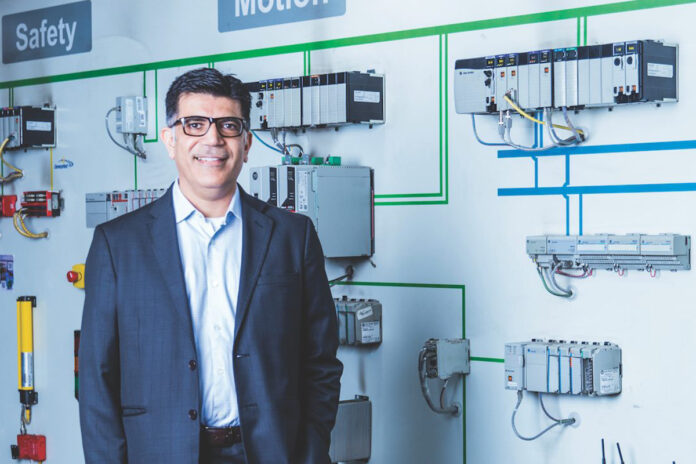
Q: How can digital technology impact India’s economy, particularly in manufacturing and the automotive sector?
A: Digital technology has the potential to drive exponential GDP growth in India. Manufacturing and the automotive industry have already adopted digital solutions, such as MES and PLM, resulting in significant business improvements. However, to become a top global economy, India needs a fundamental transformation rather than incremental changes.
Q: What role do digital twins play in optimizing manufacturing processes in India?
A: Digital twins, including CAD designs and process models, are crucial in optimizing processes, reducing waste, and accelerating time-to-market. They enable businesses to address issues in the digital realm before they impact real-world operations.
Q: How can India achieve a balance between automation and job creation in its manufacturing sector?
A: Achieving a $1 trillion manufacturing economy requires sustained growth without sacrificing jobs. Growth relies on talent, and technology alone cannot replace humans. Therefore, human-centric technology adoption is vital to foster both economic expansion and employment opportunities.
Q: What steps should India take to become a global manufacturing hub?
A: India faces challenges in increasing the manufacturing sector’s share of GDP. Digital transformation, particularly through cloud computing, offers a unique opportunity. Businesses should prioritize proof of value and scale when adopting digital solutions to unlock India’s manufacturing potential.
Q: How have recent developments shifted the focus in supply chains, and what impact does it have on India’s manufacturing sector?
A: Recent developments have shifted the focus from “China plus One” to supply chain resiliency. Dependence on a single large country is no longer acceptable. Resilient supply chains are crucial for value creation, impacting India’s manufacturing landscape.
Q: What is the state of cybersecurity preparedness in Indian manufacturing industries, and why is it essential?
A: The state of cybersecurity preparedness is a concern. Cyberattacks can disrupt operations and hinder digital transformation efforts. Prioritizing cybersecurity measures and adopting best practices are essential to safeguard operations and support sustainability goals.
Q: How has Rockwell Automation performed in India, and what are the growth projections for the coming years?
A: Rockwell Automation has experienced double-digit growth in India over the past decade. India is among the company’s top growth markets, with expectations of further acceleration as India’s manufacturing sector expands.
Q: Is India emerging as a significant talent supply center for global companies?
A: Yes, India is becoming a key talent supply center for global companies, offering world-class talent across various functions.
Q: How does Rockwell Automation adapt to the diverse digital readiness of firms within industries?
A: Rockwell Automation adopts a diagnostic approach, assessing each firm’s unique position in its digital journey. Solutions are tailored to their specific needs, recognizing that firms within the same industry can vary widely in their digital capabilities.
Q: How can technology companies like Rockwell assist tier-two suppliers in the supply chain with advanced technologies?
A: Technology companies can support tier-two suppliers by enhancing cybersecurity, providing cost-effective automation and digital solutions, facilitating knowledge sharing, and offering training programs to upskill their workforce. This collaborative effort strengthens the supply chain ecosystem.
Q: How does Rockwell Automation view the growth potential of the northern regions in India for industrial development?
A: Rockwell Automation acknowledges growth and potential in northern regions, including Delhi. Improved physical infrastructure and transportation networks enhance connectivity among states and industrial clusters, fostering further industrial development.
Q: Are Indian factories, especially MSMEs and small suppliers, equipped to handle advanced technologies used by global manufacturing companies?
A: Rockwell Automation recognizes that firms within industries vary in their digital readiness. A diagnostic approach is essential, and the company supports each firm based on its unique position in its digital journey. Collaboration, knowledge sharing, and training are key to bridging the gap between larger manufacturers and smaller partners.









